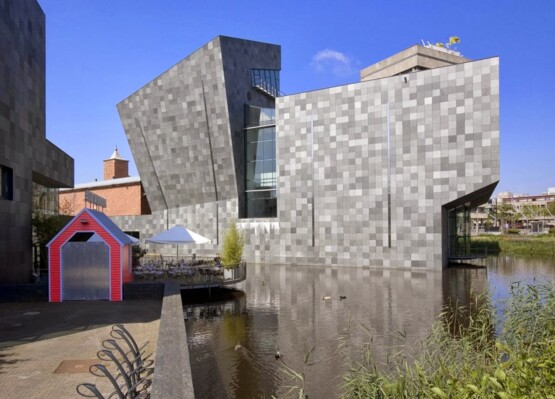The Van Abbemuseum opened in 1936 as one of the first public museums for modern and contemporary art to be established in Europe. It was named after the cigar manufacturer H. J. van Abbe, who financed the building as well as made a contribution towards purchases and running costs for its first few years. Karel 1, Van Abbe’s cigar company, sourced its tobacco from the fields of Sumatra and Java in Indonesia, a former colony of the Netherlands. The history of this modern museum, like so many others in the Western world, is thus intimately linked to that of the colonial project.
Understanding and attempting to decouple the inter-connectedness between the colonial and the modern project drives the current programming and thinking of the Van Abbemuseum. Charles Esche, the museum’s director, has used the term “the demodern option” to speculate how we, and others in Western Europe, might address and seek to unravel many of the preconceptions the modern world gave us: namely Europe’s perceived centrality to the global order and the exploitation, injustice and inequality this wrought. This perceived centrality is echoed in the historical collection of nearly 3,000 objects and archives of the museum, which we use as tools to interrogate and rethink our modern heritage from the perspective of today. Similarly, we aim to foster practices that deviate from the modern path, that harness decolonial approaches or work through decentralised methodologies. This, we think, can help us realign the museum away from the logic of modern, colonial, capitalist thinking to a more critical, inclusive and holistic institution that can contribute to imagining new possibilities for our collective future.
Central to this project are the museum’s constituents: local publics, visitors, students the staff at the museum teach, and the partners they work with. They understand a fundamental shortcoming of the modern museum was its insistence on broadcasting to, rather than thinking with, its public. Museums cannot define their subjects. Rather, they should form positions with them. With their constituents, including their friends and colleagues of the L’Internationale, they hope to institute a decentralised museum, one that is porous, open and hospitable – to both people and ideas.



